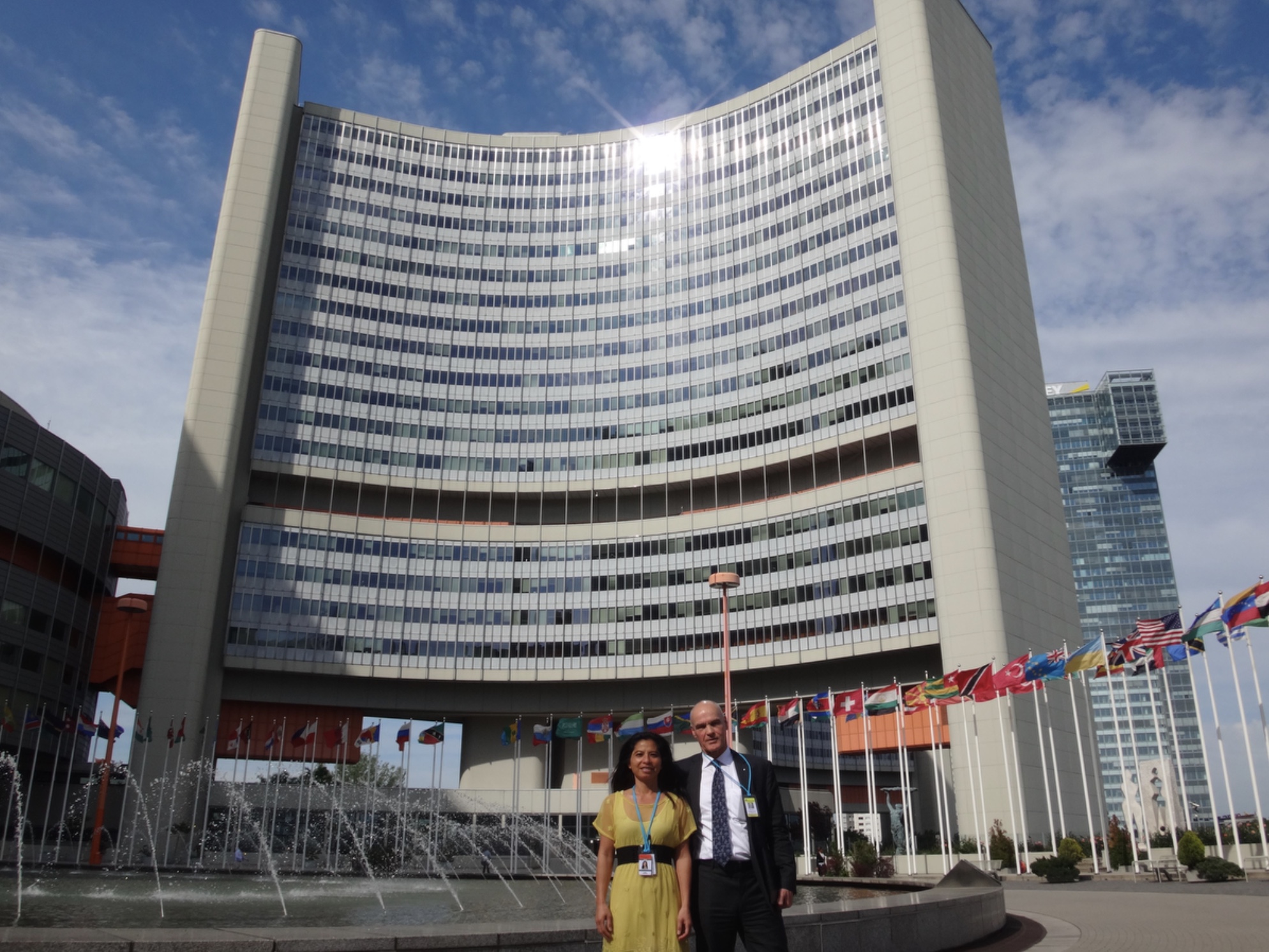Thought Leadership

The United Nations Office on Drugs and Crime (UNODC) has granted the Diplomatic Council observer status at the UN Commission on Crime Prevention and Criminal Justice (CCPCJ). This is the highest status that a civil society organization such as the Diplomatic Council can have with a UN commission. The observer status means that the DC members sent as delegates to the commission meetings have the opportunity to follow and influence the work of the respective commission in non-public sessions. However, it does not confer the right to vote on Commission decisions; this is reserved exclusively for member states of the United Nations.
Photo: DC Secretary General Hang Nguyen with DC Commissioner for UN Affairs Dr. Horst Walther at the Vienna International Centre
Highest DC Chair for Security participates
DC member Jochen M. Richter will attend the 33rd session of the Commission on Crime Prevention and Criminal Justice, which will take place from May 13 to 17 at the Vienna International Center (VIC), as a delegate of the Diplomatic Council. He is Chairman of the DC Global Security Council and will contribute the results and contacts from Vienna to his work in the Diplomatic Council's Global Security Forum. This year's CCPCJ agenda includes the fight against terrorism, a topic that has become even more dramatic following the terrible attack in Moscow on March 22 and the warning of Islamist attacks in Germany.
DC members who are interested in attending UN conferences are invited to contact the General Secretariat of the Diplomatic Council. Please note that these are all working sessions and participation only makes sense if you are interested in working on the respective topic. Regardless of their status, all participants must bear their own costs (travel, accommodation). There is no entitlement to be sent as a delegate.
Written declarations from society and business
In the run-up to Commission meetings, the Diplomatic Council can submit written statements to the UN about its own activities on the respective topic. These may not exceed 2,000 words and are intended to incorporate views from civil society and the private sector into the opinion-forming process of the international community.
The UN Commission on Crime Prevention and Criminal Justice (CCPCJ) and the Commission on Narcotic Drugs (CND) are the political decision-making bodies of the United Nations and lead international action against drugs and crime. The CND and the CCPCJ are functional commissions of the Economic and Social Council of the United Nations (ECOSOC), which gave the Diplomatic Council its UN Consultative Status.
